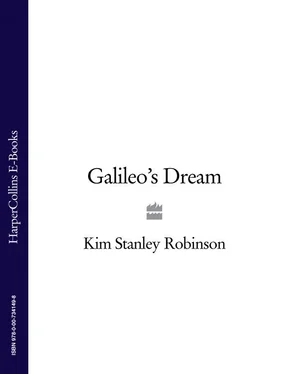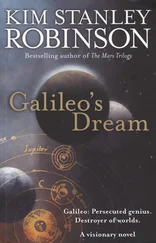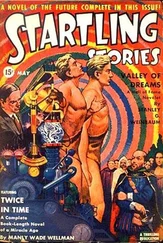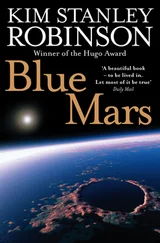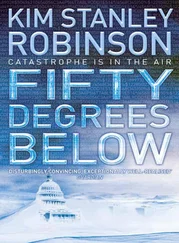But he could not think of that, or his digestion would be ruined. The students were still badgering him. Hostel Galileo rang with voices, crazy as a convent and running at a loss. If he did not invent something a little more lucrative than the military compass, he would never escape his debts.
This caused him to remember the stranger. He put Virginia down and rose to his feet. The students’ faces turned up to him like baby birds jammed in a nest.
‘Go,’ he said with an imperious wave of the hand. ‘Leave me.’
Sometimes, when he got really angry, not just exploding like gunpowder but shaking like an earthquake, he would roar in such a way that everyone in the house knew to run. At those times he would stride cursing through the emptied rooms, knocking over furniture and calling for people to stay and be beaten as they deserved. All the servants and most of the students knew him well enough to hear the leading edge of that kind of anger, contained in a particular flat disgusted tone, at which point they would slip away before it came on in full. Now they hesitated, hearing not that tone, but rather the sound of the maestro on the hunt. In that mood there would be nothing to fear.
He took a bottle of wine from the table, polished it off, kicked one of the boys in order to tip the balance of their judgement toward flight. ‘Mazzoleni!’ he bellowed. ‘MAT! ZO! LEN! EEEEEEEEEE!’
Well, no earthquake tonight; this was one of the good sounds of the house, like the cock crowing at dawn. The old artisan, asleep on the bench by the oven, pushed his whiskery face off the wood. ‘Maestro?’
Galileo stood over him. ‘We have a new problem.’
‘Ah.’ Mazzoleni shook his head like a dog coming out of a pond, looked around for a wine bottle. ‘We do?’
‘We do. We need lenses. As many as you can find.’
‘Lenses?’
‘Someone told me today that if you look through a tube that holds two of them, you can see things at a distance as if they were nearby.’
‘How would that work?’
‘That’s what we have to find out.’
Mazzoleni nodded. With arthritic care he levered himself off the bench. ‘There’s a box of them in the workshop.’
Galileo stood jiggling the box back and forth, watching the lamps’ light bounce on the shifting glasses. ‘A lens surface is either convex, concave, or flat.’
‘If it isn’t defective.’
‘Yes yes. Two lenses means four surfaces; so there are how many possible combinations?’
‘Sounds like twelve, maestro.’
‘Yes. But some are obviously not going to work.’
‘You’re sure?’
‘Flat surfaces on all four sides are not going to work.’
‘Granted.’
‘And convex surfaces on all four sides would be like stacking two magnifying lenses. We already know that doesn’t work.’
Mazzoleni drew himself up: ‘I concede nothing. Everything should be tried in the usual way.’
‘Yes yes.’
This was Mazzoleni’s stock phrase for such situations. Galileo nodded absently, putting the box down on the work-shop’s biggest table. He reached up to dust off the folios lying aslant on the shelf over it; they looked like guards who had died on watch. While Mazzoleni gathered lenses scattered in pigeonholes around the workshop, Galileo lifted down the current working folio, a big volume nearly filled with notes and sketches. He opened it to the first empty pages, ignoring the rest of the volumes above, the hundreds of pages, the twenty years of his life mouldering away, never to be written up and given to the world, the great work as lost as if it were the scribblings of some poor mad alchemist. When he thought of the glorious hours they had spent working with the inclined planes they had built, a pain stuck him like a needle to the heart.
He opened an ink bottle and dipped a quill in it, and began to sketch his thoughts about this device the stranger had described, figuring out as he did how to proceed. This was how he always worked when thinking over problems of motion or balance or the force of percussion; but light was peculiar. He did not sketch any pattern that looked immediately promising. Well, they would simply try every combination, as Mazzoleni had said, and see what they found.
Quickly the ancient artisan knocked together some little wooden frames they could clamp different lenses into. These could then be attached to the ends of a lead tube Mazzoleni found in a box of odds and ends. While he did that Galileo laid out their collection of lenses by type, fingering each, holding up two at a time and peering through them. Some he gave to Mazzoleni to attach to the ends of the tube.
They only had the lamplit workshop to look at, and the area of the garden and arbour illuminated by the house windows; but it was enough to check for possibilities. Galileo looked at the lenses in the box, held them in the air. Inward, outward: the images blurred, went absent, grew diffuse, even made things smaller than what one saw with the eye alone. Although an effect the reverse of what one wanted was always suggestive.
He wrote down their results on the open page of the work book. Two particular convex lenses gave the image upside down. That cried out for a geometrical explanation, and he noted it with a question mark. The inverted image was enlarged, and sharp. He had to admit to himself that he did not understand light, or what it was doing between the lenses in the tube. He had only ventured to give classes on optics twice in seventeen years, and had been unhappy both times.
Then: hold up two lenses, look: and the potted citron at the edge of the garden appeared distinctly larger in the glass closest to his eye. Green leaf lit from the side by lantern light, big and sharp-
‘Hey!’ Galileo said. ‘Try this pair,’ he told Mazzoleni. ‘Concave near the eye, convex at the far end of the tube.’
Mazzoleni slotted the lenses into the frames and gave the tube to Galileo, who took it and pointed it at the first tree branch in the arbour, illuminated by the lit windows of the house. Only a small part of the branch appeared in the tube, but it was definitely enlarged: the leaves big and distinct, the bark minutely corrugated. The image was slightly blurred at the bottom, and he shifted the outside frame to tilt the glass, then rotated it, then moved it further out on the tube. The image became sharper still.
‘By God it works! This is strange!’
He waved at the old man. ‘Go to the house and stand in the doorway, in the lamp light.’ He himself walked through the garden out into the arbour. He trained the tube on Mazzoleni in the doorway. ‘Mother of God.’ There in the middle of the glass swam the old man’s wrinkled face, half-bright and halfshadowed, as close as if Galileo could touch him; and they were fifty feet apart or more. The image burned into Galileo’s mind, the artisan’s familiar gap-toothed grin shimmery and flat, but big and clear-the very emblem of their many happy days in the workshop, trying new things.
‘My God!’ he shouted, deeply surprised. ‘It works!’
Mazzoleni hurried out to give it a try. He rotated the frames, looked through it backwards, tipped the frames, moved them back and forth on the tube. ‘There are blurry patches,’ he noted.
‘We need better lenses.’
‘You could order a batch from Murano.’
‘From Florence. The best optical glass is Florentine. Murano glass is for coloured trinkets.’
‘If you say so. I have friends who would contest that.’
‘Friends from Murano?’
‘Yes.’
Galileo’s real laugh was a low huh huh huh huh huh. ‘We’ll grind our own lenses if we have to. We can buy blanks from Florence. I wonder what would happen if we had a longer tube.’
‘This one is about as long as we’ve got. I guess we could make some longer sheets of lead and roll them up, but we would have to make the moulds.’
Читать дальше
